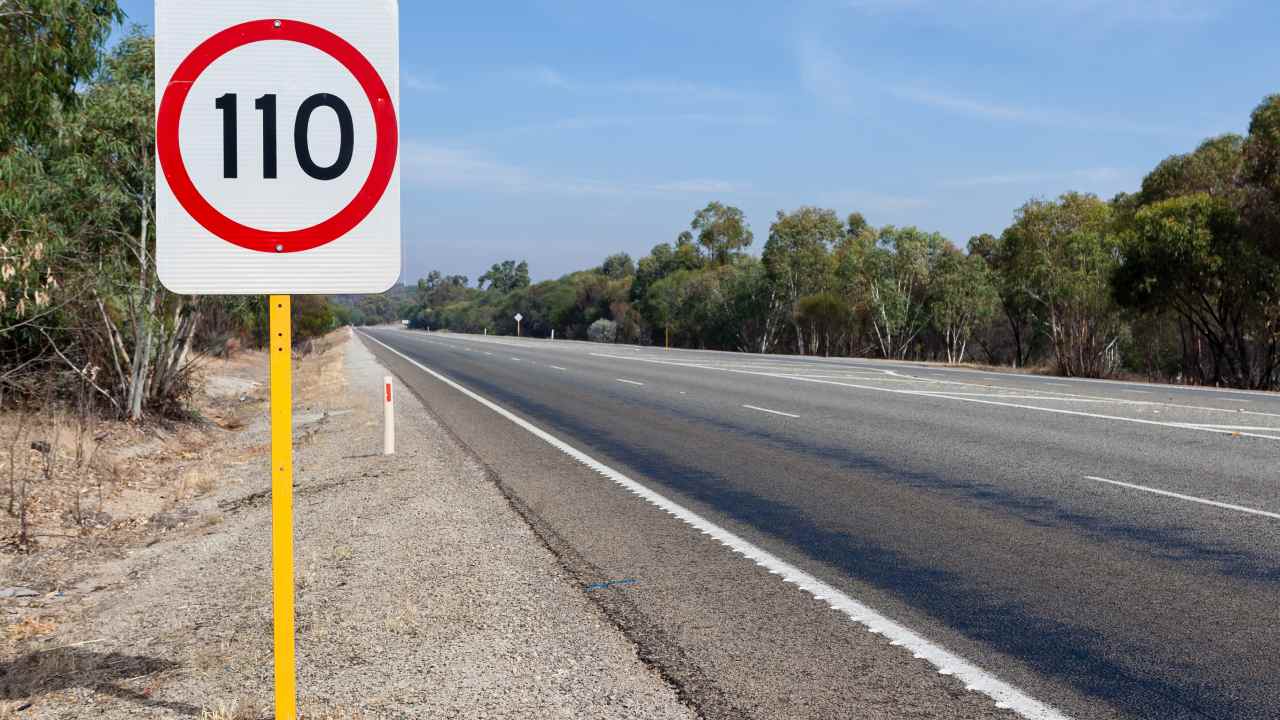Road rule myth that WILL see you slapped with fines

When it comes to speed limits, many drivers will say that you are safe if you only slightly exceed the limit as police give a 10 per cent leeway when checking speed.
Believing this urban legend could be a costly error to make as authorities can punish anyone driving beyond the speed limit even if it is just a couple of kilometres over the actual limit.
We all know speeding comes with heavy penalties, fines and demerit points and poses a danger to not only the driver, but fellow passengers and other cars on the road alike. Why has this myth become so prolific?
No matter where you go in Australia, every road has a speed limit that must be obeyed and police officers say they won’t give any leeway to anyone being caught breaking it. Their argument is backed by Australian Road Rules where Rule 20 spells out that going over the limit is an offence no matter how small or large the breach may be.
Of course, speed limits do vary depending on the environment that you are in. Many states apply the same limits as one another with some of the most common limits including:
- 60 km/h in residential areas and estates.
- 80 km/h on major urban roads
- 110km/h on freeways and rural roads.
If you were to believe the 10 per cent rule then you would expect that police would not fine you if were going 66km/h or under in a 60km/h zone.
That would mean on freeways you would be able to go 11km/h over the limit which would put you into the higher tier of punishments and see you run the risk of copping some serious fines.
This thought echoed by Victoria Police when asked about the truth behind the myth.
In a statement a spokesperson told Yahoo news Australia that “our role is to prevent people from becoming seriously injured or dying on our roads”.
If you are detected travelling over the limit you should expect to be caught” the statement said.
As you would expect anyone caught speeding and given a ticket will find themselves staring at a combination of both fines and demerit points.
The punishments for speeding differ depending on how far over the limit you are. Fortunately, only slight breaking the speeding limit (less than 10km/h) comes with a fairly lenient penalty will that allows you to keep your license with some penalty points added. If you are caught prepare to take a double penalty combo wherever you go. These vary across Australia with each state offering the following combinations:
- NSW: Speeding penalties are based on the vehicle type. Most road users will have a Class A vehicle which will see you given a $123 fine and issued one demerit point. The penalty is harsher for new drivers, as P-platers will be issued four demerit points instead of one.
- VIC: Drivers are given the same penalty regardless of their experience level and face a $227 fine and one demerit point if they break the speed limit by less than 10km/h.
- QLD: Drivers are driven a bit more leeway with speeds as the lowest penalty boundary is stretched to 13km/h. However, offenders can still get a fine of $183 and one demerit point will be added to their license.
- SA: Drivers must be 9km/h or under if they want to escape harsh penalties. Those caught just breaking the speed limit face a combined fine of $275 and could receive two demerit points to their license.
- WA: A slight enigma as they are the only state not to issue demerit points for speeding just over the limit. If you are caught doing 9km/h or less over the limit you will only receive a $100 fine.
- TAS: These rules are lenient for anyone who is found only just breaking the speed limit. If you aren’t move than 10km/h over the limit, you will be given an $83 fine as well as two demerit points added to your license.
- ACT: The lowest penalty band is extended to 15km/h however, the penalties are some of the harshest in the country. Anyone caught travelling just over the speed limit faces a fine of $301 and one demerit point. If it occurs in a school zone the fine increases to $325.
- NT: Similar to the ACT, the NT extends penalty band to 15km/h. The penalties for getting caught are harsh with $150 fine and one demerit point issued to offending drivers.
Despite risk of fines, there are some leeway’s given to drivers as authorities do acknowledge speedometers and other measuring devices have a slight degree of inaccuracy. This thought was echoed by the NRMA to spokesperson Peter Khoury who says that drivers are “given restricted leeway to accommodate slight inaccuracy of measuring devices within a reasonable degree of concession”.
“We strongly urge drivers to stick to the speed limits regardless of a potential leeway given to them by police” he added.
It is always best to stick to the speed limit, even when in a rush.
